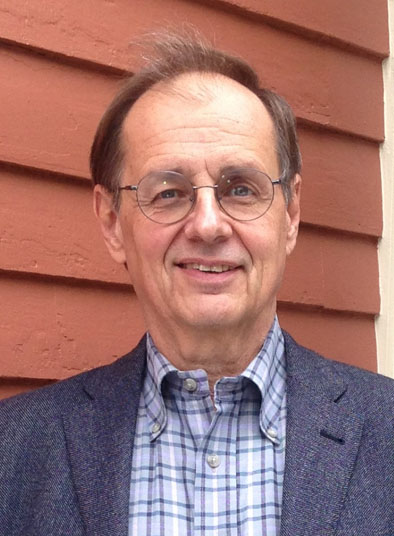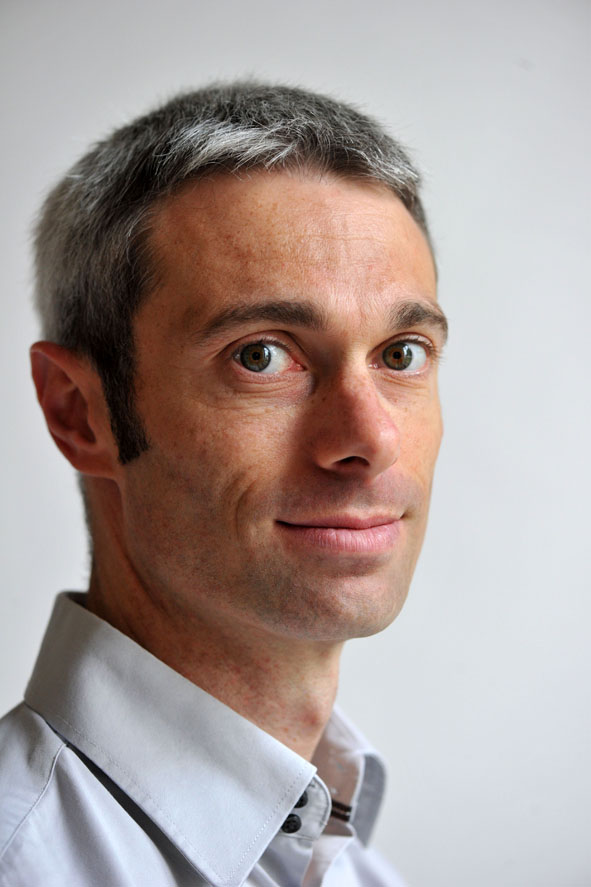PresentationFoundations of the Conference From Innovative Work to A New Economy There is an emerging new economic policy discussion that focus on potential economic effectiveness advantages of innovative and creative engagement of the workforce – and emphasizes the social, organizational and psychological structure of work organization. This supplements our still relatively recent understanding of the social costs of poor organization of work and economy. Economic innovation, which is Work Organization-based and which relates to the psychosocial character of jobs (for example: Active Work, from the Demand/ Control Model), has recently been the focus of much recent European discussion about economic development (Dhondt, et al, “EUWIN,” 2013, Pot, et al, 2015). In this conference we extensively expand similar themes to address an even broader goal: how could we contribute to broadening the debate to development of a New Economy - based on Innovative and Healthy Work. An Innovation-based, “Conducive Economy” and Smart Jobs (Theme 1) Different “rules” for the organization of work do indeed have obvious and dramatically different effects on both workplace output and work’s creativity and on customer satisfaction - demonstrating that alternative approaches can be eminently “feasible.” To get a quick idea: click on this video of a work organization “game”: https://youtu.be/5Bue-QkdUJY The Conducive Economy is one such “innovation-based” pathway that makes a link between customer’s wellbeing, satisfaction and capability development to worker’s jobs which require intelligence and creative flexibility (Karasek, 1999, “Alternative Economy,” 2004b). This new, broader understanding of “productivity” - relating to skills and capabilities - promises to be a pathway to “smart jobs” with career potential and to more robust job creation processes: addressing a critical need for youth in advanced economies (and world over). This is our Conference Theme 1. Healthy Work - Controlling Stress and Illness, and their Societal Costs (Theme 2) Of course, without specification of health effects of work, neither efficient production nor workplace creativity alone, could represent a “desirable” solution for a New Economy. There is indeed a Tsunami of societal health risk in which bad psychosocial work organization/bad management are on the pathway to unhealthy lives in our global economy. Furthermore, how could health and “moderated stress levels” be maintained in an even more creatively engaging and dynamic economy? As an existing platform to understand these challenges, there is an extensive literature on the job stress and illness - based on the psychosocial quality of jobs - but still many of these costs remain “invisible” in public dialogue. The magnitude of these costs is enormous: a major economic, as well as humanitarian issue, since these costs - in now aging populations in advanced economies - challenge welfare-state economic viability. These topics comprise our Conference Theme 2. The “Missing Links” in the Current Economic Logic - Are we “stuck?” But we are somehow “stuck” in old economic logics. Surprisingly, neither of the important topics above is significantly addressed by our conventional “economic logic” – a free market, global economic logic which is seemingly applied uniformly in all conditions and which seems to hold unchallengeable power in current private and public debates. BUT –a very big “But” - there are many other immediately pressing globally needs to dramatically rebuild this very same “economic discourse.” For example: it is now widely publically understood that this renewal is essential to (I) deflect climate change and insure environmental sustainability, and (II) to reverse the dramatically increasing inequality that is undermining the democratic political processes in many Western counties. And of course this renewal is needed to providing the “missing links” on the Theme 1 and 2 pathways to our goal of a Feasible New Economy of Innovative and Healthy Work. It is hardly a “utopian goal” at this time to search for new economic models.
Challenges of the Conference The Need for A Broad New Platform To bring these vast current benefits and costs into wider public discussion requires a wide platform of understanding. Fortunately there have been quite a few efforts to expand the dialogue, and with this Workshop we hope to further expand that range. For example, (a) there are many important EU networks beginning to emphasize the “social-side” of innovative economic development (i.e.: EUWIN, above). (b) There have been major debates on “alternative economics” in mainstream economic discussion platforms that are critical of growing problems as inequality. And (c) there are growing numbers of contributions in the areas of “alternative economics” in general (the collaborative economy, the sharing economy, etc.). However, in our view, often these have failed to “bring enough of the pieces together” for a New Economy model in a logically consistent manner to present an integrated alternative overview. To add to all of these attempts, we now hope to contribute further understanding using a more integrated platform, based on the new theoretical integrating anchors available psychosocial workplace organization. In particular, we will utilize the expanded and generalized version of the Demand/Control Model; now the multi-level, system-dynamics version known as the A-D/C Model). We hope that this will contribute to understanding BOTH the “constructive and innovative” goals of production – and the stress and illness risks – in an effectively combinable manner. We note: new understandings of “productivity” of new work organization/ customer linkages - when combined with the well-known literature on the Quality of Life Risks from poor work organization (see OECD, 2016 new cite) - means that we are observing both the Benefit and the Cost linkages between the society’s work organization and the wellbeing it provides to that society’s citizens. This is the basic platform for a New Economy. Maybe. But can it be feasible?
An Integrative Platform: Productivity and Health (Themes 1 and 2), combined with “How-To-Do-It” Themes 3 and 4. We expect that the real power of this conference program is in COMBINING the potential PRODUCTIVITY advantages with new HEALTH advantages (Themes 1 and 2) - and then reviewing their EFFECTIVENESS and FEASIBILITY in this combined form (Themes 3 and 4). We expect this combination of these new approaches to have much more utility than they have separately - as they are almost always so far appear. In terms of Effectiveness and Feasibility, this means that both "How To" issues - for these Combinations - at both the Micro and Macro levels - must be addressed in the conference also: which we do at the Organization and Management level (our Conference Theme 3) and Political Economy/Institutional Policy level (our Conference Theme 4). New Syntheses: Silo-Bridges and New Vocabularies Toward a New Economy In our Expert Day meetings and in our Stakeholders Day meetings we hope to then integrate these Four Theme areas. So: such a conference must bridge communication gaps and in both academic disciplines and “silo-separations” in private industry and public sector organizations. We must span many traditional chasms both intellectual and pragmatic - while still retaining the existing accumulated wisdoms of conference attendees in these areas. Thus, we have a Conference Process Plan that focuses on facilitating discussion of the how these input/outputs COMBINE. Then, we can use this full new synthesis to compare and coordinate with our current economic logics. Our participants with professional economics backgrounds will obviously be critical for this step
Conference Participation: Speaking-out in new contexts - Conference Participation will primarily occur in a small discussion group context. - Each conference Expert will have an opportunity to make a short personal presentation within in his/her ”home-turf” area. - All Stakeholder sessions are designed to maximize the opportunity for participants to speak out on these topics. - We will have simultaneous translation available for the Stakeholder day (French/English, English/French). - Each Day will close with all-attendant Plenary Review of small group inputs.
The organizers
Emeritus Professor Univ. of Mass Lowell, US & Emeritus Professor Copenhagen Univ., DK. Robert Karasek, PhD, holds degrees in Sociology and Labor relations, civil engineering and architecture. He is a specialist in the psychosocial aspects of work and work redesign processes. Having served on the faculty of the Department of Industrial Engineering at Columbia University, he is an Emeritus Professor in the Department of Work Environment at the University of Massachusetts Lowell, United States, and Emeritus Professor at the Department of Psychology, Copenhagen University. He is the author of the Demand/Control model of work organization effects on health and learning, and author of psychosocial job stress questionnaire (JCQ) used in studies of stress and heart disease, MSD, and mental strain all over the world. He has published many peer-reviewed articles, primarily on work organization, job stress and cardiovascular diseases, is co-author of the often-utilized book, Healthy Work, and has received an American Psychological Assoc. Lifetime Career Achievement Award for his work. He is Director of the JCQ Center and of Øresund Synergy, a work organization competency pool in Denmark and Southern Sweden
Academy research fellow from CNRS, member of the Centre for comparative labour and social security law, COMPTRASEC, UMR 5114 CNRS-University of Bordeaux. He graduated in labour law from the Universities of Nantes and Bordeaux. He studied for several years health at work and the recognition of a right to protection of mental health at work. He is the author of numerous scientific publications and conferences on the subject in France and abroad. Its occupational health research focuses on the comparative analysis of the different national and international laws. His work is extended in the organization of a dialogue between different scientific disciplines, but also in the fulfillment of an exchange between research and health actors to work. He applies this approach in particular for the organization of numerous scientific events and networking. |



